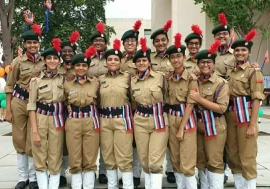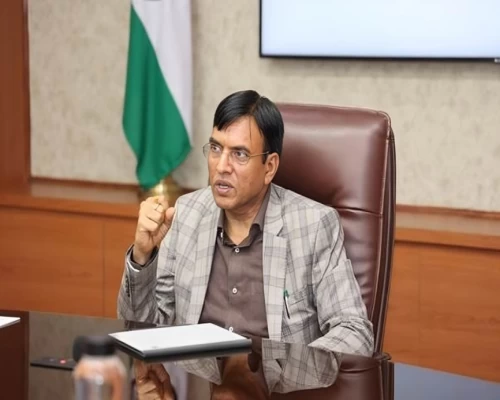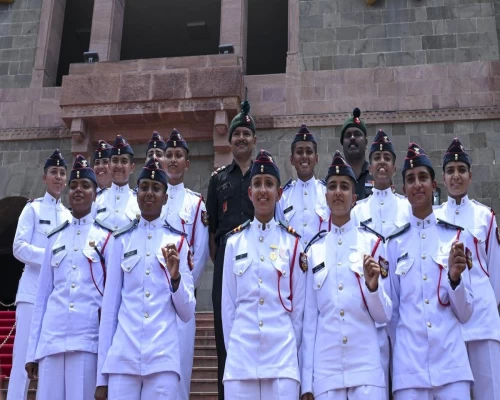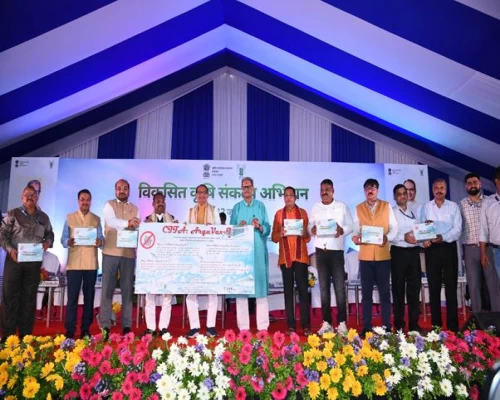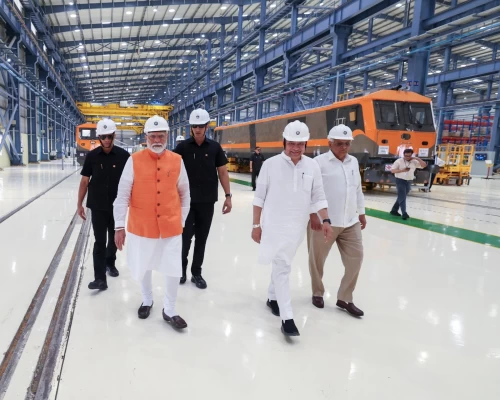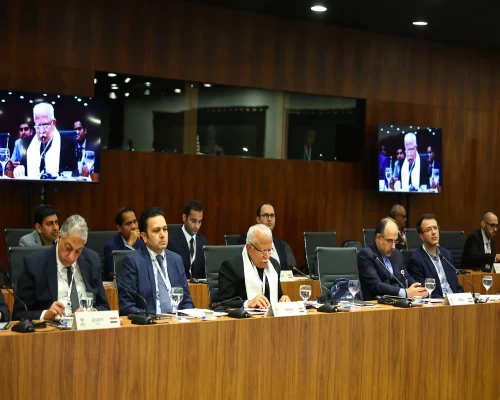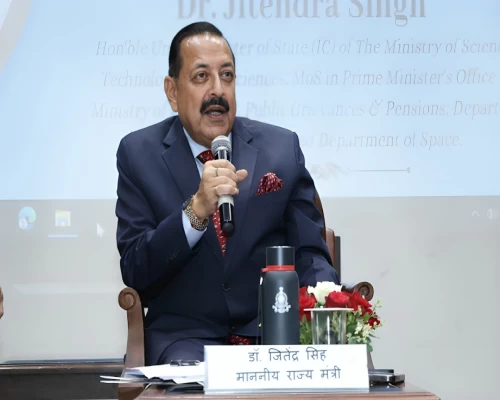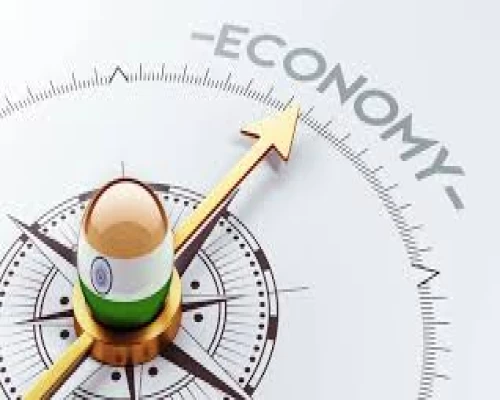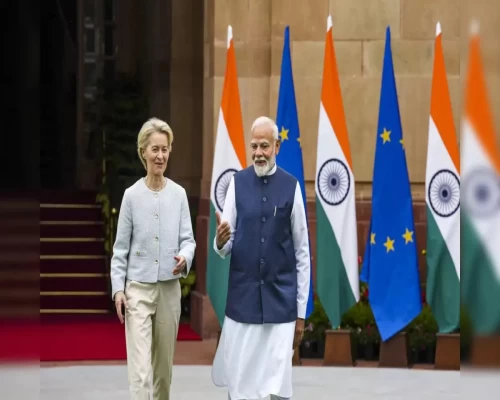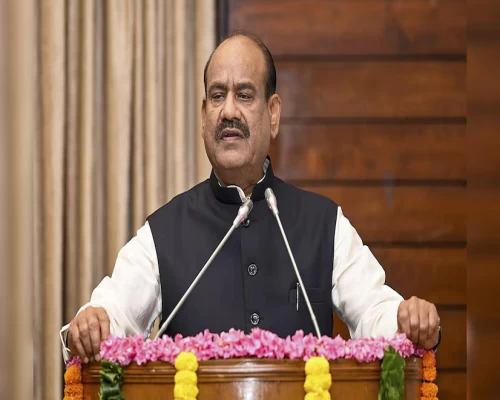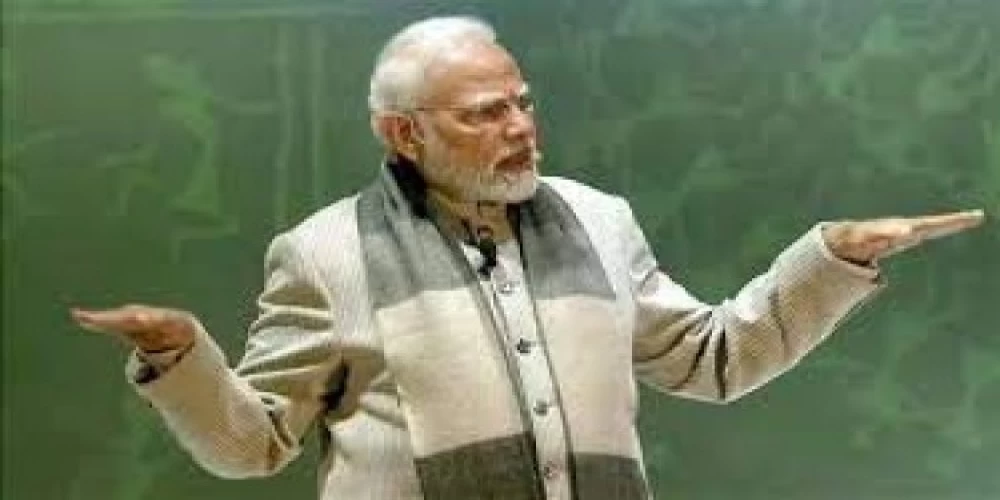
New Delhi: In the 6th Edition of Pariksha Pe Charcha (PPC), Prime Minister Narendra Modi interacted with students, teachers and parents Friday at Talkatora Stadium here. He also witnessed the exhibits of students showcased at the venue before the interaction. About 38.80 lakh registrations had taken place from 155 countries for this year’s edition of PPC.
Addressing the gathering, Prime Minister Modi highlighted that this is the first time that ‘Pariksha Pe Charcha’ is taking place during the Republic Day celebrations and noted that those visiting New Delhi from other states also got a glimpse of the Republic Day.
Throwing light on the importance of Pariksha Pe Charcha for the Prime Minister himself, he pointed out the millions of questions that are posed as part of the programme and said that it gives him insight into the minds of the young generations of India.
“These questions are like a treasure trove for me,” Prime Minister Modi said. He pointed out that he would like the compilation of all these questions which can be analyzed by social scientists in the coming years giving us a detailed thesis about the minds of young students at such a dynamic time.
Modi also talked about ever-increasing standards of performance and growing expectations with every success. He said it is not good to be bogged down by the surrounding web of expectation and one should look inwards and link the expectation with one's own capabilities, needs, intentions and priorities.
Giving the example of the game of cricket where the crowd keeps on rooting for fours and sixes, the Prime Minister said that a batsman who goes out to bat remains unperturbed even after so many people in the audience plead for a six or a four. Drawing the link between the focus of a batsman on a cricket field and the minds of students, the Prime Minister said that the pressure of expectations can be obliterated if you remain focused.
Addressing the questions about not knowing where to start the preparations for the exam and the stressful situation leading to forgetfulness, the Prime Minister stressed the importance of time management in general life with or without exams. He said work never tires, in fact not working tires a person. He asked students to note down the time allotment to various things that they do.
The Prime Minister expressed happiness that students had raised the topic of finding ways to deal with malpractices during the exam and pointed out the negative change in the morals where a student takes pride in fooling the supervisor while cheating in an exam. “This is a very dangerous trend,” the Prime Minister said as he asked the society as a whole to ponder about it.
A student from Kozhikode Kerala asked about the need and dynamics of hard work versus smart work. Giving the example of smart work, the Prime Minister highlighted the parable of the thirsty crow who threw stones in a pitcher to quench his thirst. He emphasized the need to closely analyse and understand the work and highlighted the moral from the story of working hard, smartly.
The Prime Minister said India is being seen as a new hope in the global economy. He recalled the time when Indian economists and even the Prime Minister were not seen as proficient economists but today India is seen as shining in the comparative economics of the world. “We should never be under the pressure that we are average and even if we are average there will be something extraordinary in us, all you need to do is to recognize and nurture that,” he said.
The Prime Minister also highlighted the scenes from the Parliament session when a member who is addressing the session on a certain topic doesn't deviate even after getting interrupted by members of the opposition. Secondly, the Prime Minister also highlighted the importance of labour and research in being a critic but observed the shortcut trend in today’s day and age where most people pose allegations rather than criticism.
The Prime Minister said that the main reason for stress after exams is not accepting the truth about if the exams went well. The Prime Minister also mentioned competition among students as a stress-inducing factor and suggested that students should live and learn from themselves and their surroundings while strengthening their inner capabilities.
The Prime Minister stressed the need to know at least one regional language from India other than the mother tongue and highlighted how it will brighten up the faces of people who know the language when you talk to them. The Prime Minister gave the example of an 8-year-old daughter of migrant labour in Gujarat who spoke many different languages.
Concluding the address, Prime Minister Modi thanked everyone present on the occasion and urged parents, teachers and guardians to dilute the stressful environment that is being created during exams to the maximum extent. As a result, the exams will be transformed into a celebration filling the lives of students with enthusiasm, and it is this enthusiasm that will guarantee the excellence of students. /BI/


